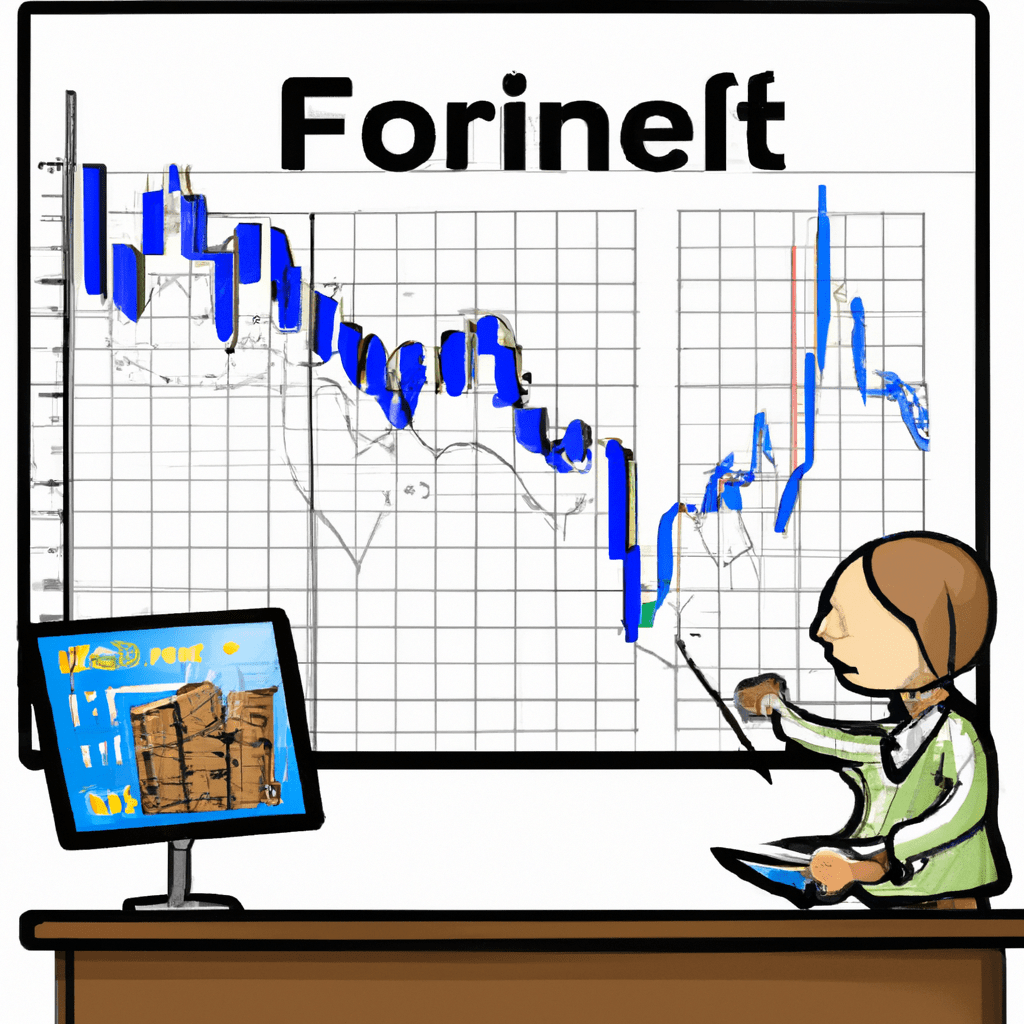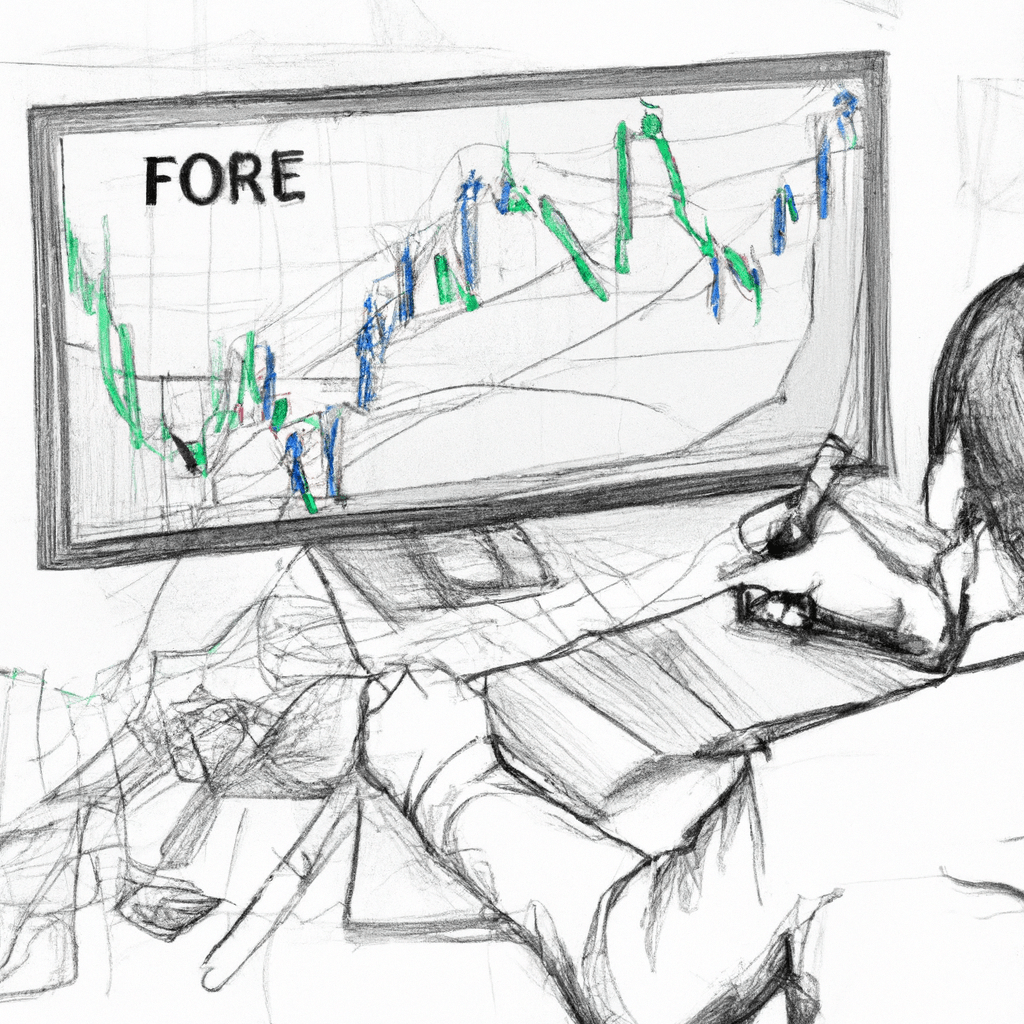This section provides an overview of forex trading, including its definition, size, and operating hours. It emphasizes the importance of caution, education, and risk management for beginners entering the forex market. It discusses the benefits of using forex tools and signals to maximize profits, and highlights the growing popularity of CFD trading and spread-betting as alternative approaches. Overall, it emphasizes the opportunities and potential for success in forex trading, while emphasizing the need for caution and effective risk management strategies.
Interested in delving into the world of forex trading? Look no further! This comprehensive guide is designed to provide beginners with a solid understanding of the basics of forex trading, while also offering strategies for maximizing profits using forex tools and signals. Additionally, we will explore the lucrative approach of CFD trading and spread-betting in the forex markets. Whether you're new to trading or looking to enhance your existing knowledge, this article will equip you with the necessary information to navigate the world of forex trading successfully. So, let's dive in and explore the exciting opportunities that forex trading has to offer!
1. “Understanding the Basics of Forex Trading: A Comprehensive Guide for Beginners”

Forex trading, also known as foreign exchange trading, is the process of buying and selling currencies in the global marketplace. It is the largest and most liquid financial market in the world, with an average daily trading volume of over $6 trillion. For beginners looking to enter the world of forex trading, understanding the basics is essential.
The forex market operates 24 hours a day, five days a week, allowing traders to access it at their convenience. Unlike stocks or commodities, forex trading does not have a centralized exchange. Instead, it is conducted electronically over-the-counter (OTC), which means that transactions are executed directly between participants through computer networks.
One of the key concepts in forex trading is currency pairs. A currency pair consists of two currencies, with the first currency being the base currency and the second currency being the quote currency. The exchange rate between the two currencies determines the value of the currency pair. For example, in the EUR/USD currency pair, the euro is the base currency, and the US dollar is the quote currency.
Traders can profit from forex trading by speculating on the movements of currency pairs. If a trader believes that the value of a currency pair will increase, they can buy (or go long) the pair. Conversely, if they believe the value will decrease, they can sell (or go short) the pair. Profits or losses are realized based on the difference in the exchange rate between the time of opening and closing a trade.
Forex trading offers various trading strategies and tools to assist traders in their decision-making process. Technical analysis, using forex charts and indicators, helps identify patterns and trends in currency price movements. Fundamental analysis, on the other hand, focuses on economic and political factors that can influence currency values. Both approaches are commonly used to make informed trading decisions.
To trade forex, traders can choose between different trading vehicles, such as spot forex, forex futures, and forex options. Additionally, some traders engage in spread betting, a form of trading where they speculate on the price movements of currency pairs without owning the underlying assets. This allows for potential profits from both rising and falling markets.
In recent years, the availability of forex signals and tools has increased, providing traders with additional support. Forex signals are trading recommendations generated by experienced traders or automated systems. These signals can help traders identify potential trading opportunities and make informed decisions. Forex tools, such as trading platforms and analytical software, assist traders in executing trades and analyzing market data.
It is important for beginners to approach forex trading with caution and to educate themselves thoroughly before diving into the market. Understanding risk management principles, developing a trading plan, and practicing with a demo account are essential steps to gain experience and confidence as a forex trader.
In conclusion, forex trading offers a world of opportunities for beginners and experienced traders alike. By understanding the basics of forex trading, utilizing the available tools and resources, and managing risk effectively, traders can navigate the dynamic forex markets and potentially achieve financial success.
2. “Maximizing Profits with Forex Tools and Signals: Strategies for Successful Trading”

Maximizing Profits with Forex Tools and Signals: Strategies for Successful Trading
Forex trading is a highly volatile and complex market, where traders aim to make profits by speculating on the movements of currency pairs. To effectively navigate this market and increase the chances of success, traders need to utilize various tools and signals specifically designed for forex trading.
Forex tools play a crucial role in providing traders with the necessary information and analysis to make informed decisions. These tools include forex charts, which display the historical and current price movements of currency pairs. By studying these charts, traders can identify trends, patterns, and support/resistance levels, which can help them predict future price movements. Additionally, forex tools also offer technical indicators such as moving averages, oscillators, and Fibonacci retracements, enabling traders to further analyze the market and make more accurate predictions.
Another important aspect of maximizing profits in forex trading is utilizing forex signals. These signals are generated by professional traders or specialized software, and they provide recommendations on when to enter or exit trades. Forex signals are based on extensive market analysis and can be delivered through various mediums, such as email alerts, SMS notifications, or dedicated trading platforms. By following these signals, traders can capitalize on profitable opportunities without having to constantly monitor the market themselves.
Furthermore, forex signals can be especially beneficial for spread-betting and CFD trading, as they allow traders to speculate on the price movements of currency pairs without owning the underlying assets. This means that traders can profit from both rising and falling markets, increasing their potential for generating profits.
To effectively maximize profits with forex tools and signals, traders should consider the following strategies:
1. Research and select reliable forex tools and signals providers: It is crucial to choose reputable sources that offer accurate and timely information. Traders should thoroughly research different providers, considering factors such as track record, customer reviews, and the comprehensiveness of their analysis.
2. Combine forex tools and signals with personal analysis: While forex tools and signals can be invaluable, it is essential to complement them with one's own analysis. Traders should understand the reasoning behind the signals and use forex tools to confirm and validate the provided recommendations.
3. Develop a risk management plan: Forex trading involves inherent risks, and it is important to have a well-defined risk management strategy in place. This includes setting stop-loss orders to limit potential losses and using appropriate position sizing techniques to protect against excessive risk.
4. Regularly evaluate and adjust strategies: The forex market is dynamic and constantly evolving. Traders should regularly review and assess their strategies, adapting to market conditions and incorporating new tools or signals that prove to be effective.
In conclusion, maximizing profits in forex trading requires the use of forex tools and signals to make informed decisions. By leveraging these resources and employing effective strategies, traders can increase their chances of success in the forex market.
3. “Exploring the World of CFD Trading and Spread-Betting: A Lucrative Approach to Forex Markets”

Forex trading has gained immense popularity in recent years, thanks to its potential for generating significant profits. However, many traders are now turning their attention towards other lucrative approaches within the forex market, such as CFD trading and spread-betting.
CFD trading, short for Contract for Difference, allows traders to speculate on the price movements of various financial instruments without actually owning the underlying asset. This approach offers greater flexibility and a wide range of trading options, including forex, stocks, commodities, and indices. With CFD trading, traders can take advantage of both rising and falling markets, making it a versatile strategy.
Spread-betting, on the other hand, involves placing bets on the price movements of financial instruments. Similar to CFD trading, spread-betting does not require traders to own the underlying asset. Instead, traders speculate on whether the price of a particular instrument will rise or fall. The profit or loss is then determined by the accuracy of the bet.
Both CFD trading and spread-betting provide traders with the opportunity to trade forex markets with leverage, which means they can control larger positions with a smaller amount of capital. This amplifies potential profits, but it's important to note that it also increases the risk of losses. Therefore, traders must exercise caution and employ risk management strategies when engaging in these approaches.
To maximize their chances of success in CFD trading and spread-betting, traders can utilize various forex tools and resources. These include forex signals, which provide insights into potential trading opportunities based on technical analysis and market trends. Additionally, traders can utilize charts and technical indicators to analyze price patterns and make informed trading decisions.
The FX markets, where CFD trading and spread-betting take place, offer a highly liquid and volatile environment. This presents ample opportunities for traders to profit from both short-term and long-term price movements. However, it's crucial for traders to stay updated with market news and events that can impact forex prices, as well as continuously refine their trading strategies.
In conclusion, exploring the world of CFD trading and spread-betting offers a lucrative approach to forex markets. With the ability to trade various financial instruments and utilize forex tools, traders can take advantage of the opportunities presented by the FX markets. However, it's important to remember that these approaches come with increased risks, and traders must exercise caution and employ effective risk management strategies to succeed in this competitive industry.
In conclusion, forex trading offers a lucrative opportunity for individuals to enter the world of financial markets and potentially maximize their profits. With a comprehensive understanding of the basics of forex trading, beginners can start their journey with confidence. By utilizing forex tools and signals, traders can develop effective strategies to achieve successful trading outcomes. Additionally, exploring the world of CFD trading and spread-betting provides alternative approaches to the forex markets, allowing traders to diversify their portfolios and capitalize on various trading opportunities. Whether utilizing charts, forex signals, or engaging in CFD trading, individuals can tap into the vast potential of the forex markets and navigate their way to financial success. So, embrace the world of forex trading, stay informed about the latest market trends, and make informed decisions to achieve your trading goals.





